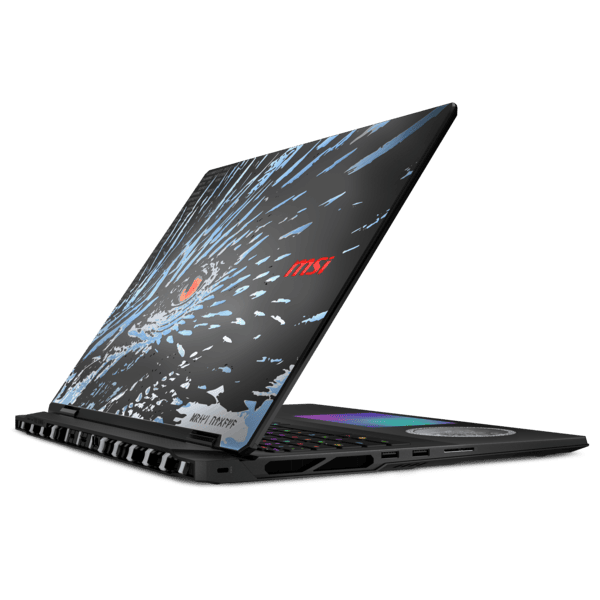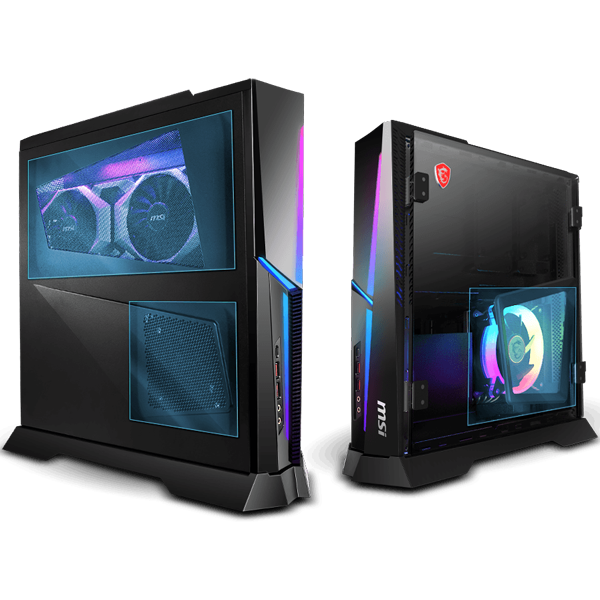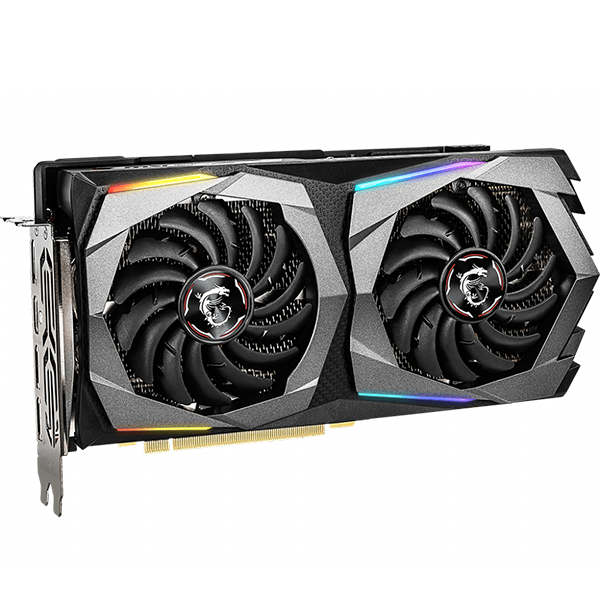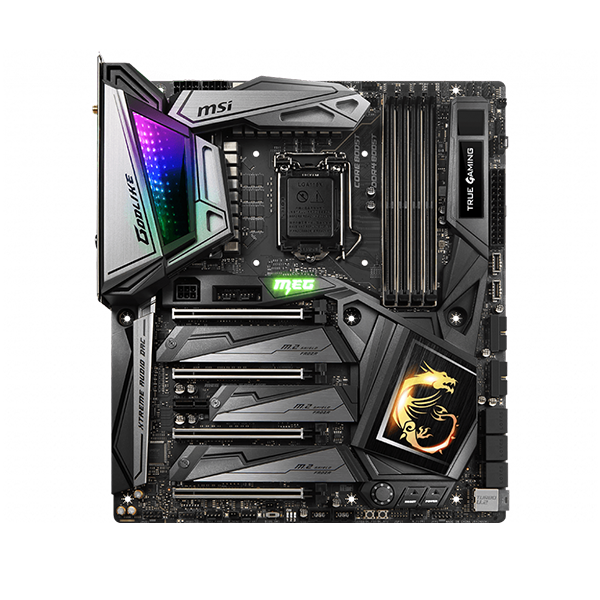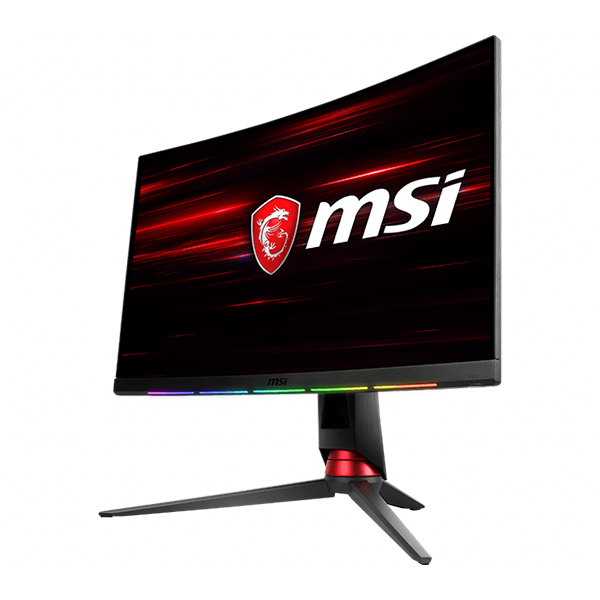USB devices are not working during Windows installations
If you are installing Windows 7, the USB mouse and keyboard might not be functional under the Windows installation environment due to the lack of USB driver. It is recommended to create a Windows 7 installation device with MSI Smart Tool, which the USB driver will be packed in the System installation program.
- How to use MSI Smart Tool to create a Windows 7 installation device
- What to do when USB devices are not working when installing Window 10
How to use MSI Smart Tool to create a Windows 7 installation device(For the situation that the mouse and Keyboard are not working during the Windows 7 installation process)
Go to MSI official website, search your motherboard and download MSI Smart Tool.
For example: X470 GAMING PRO, input the product name on the top right search bar, press [Enter]
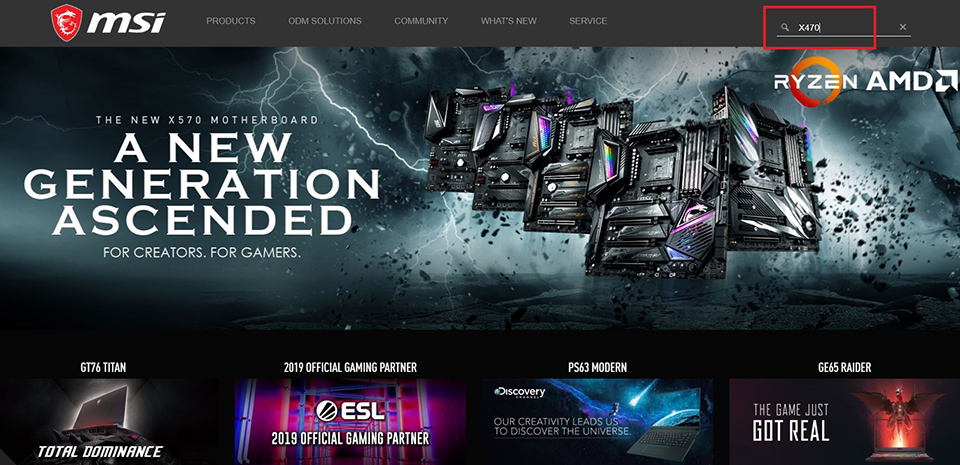
The matching result for “X470 GAMING PRO” will show up, select [Download] to enter download section.
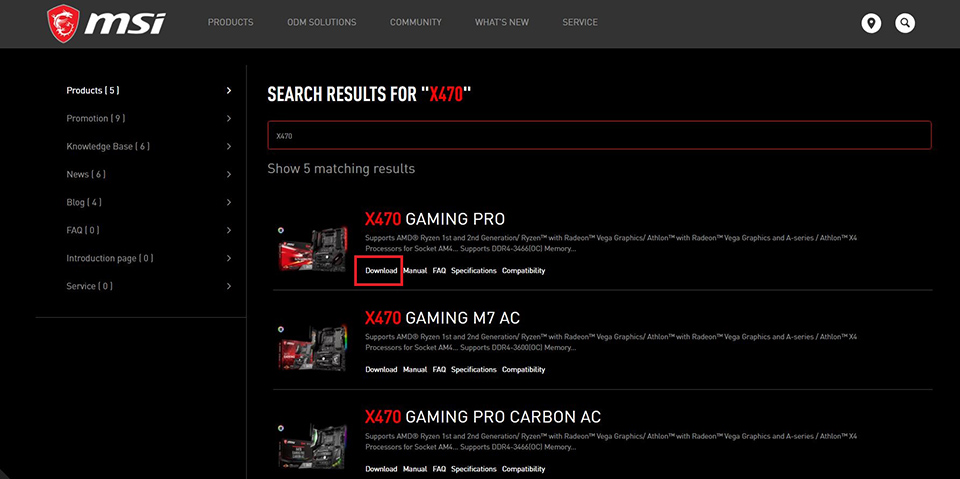
Go to [Utility] tab, Select your operating system
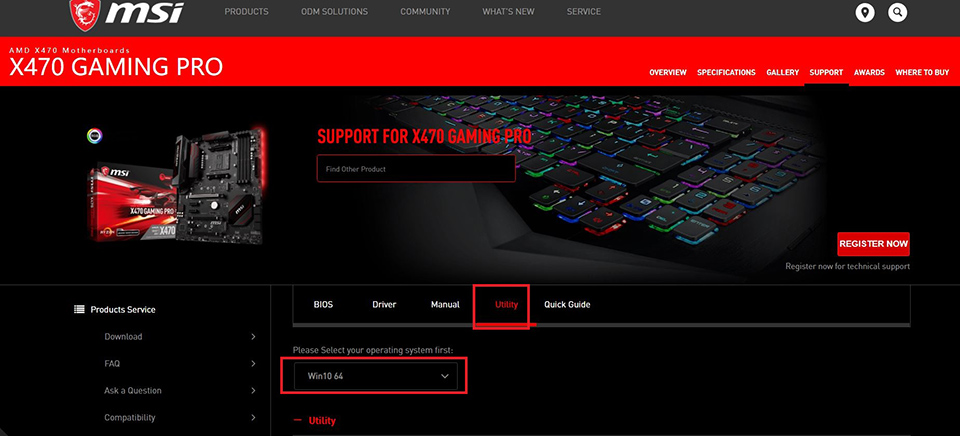
Look for [MSI Smart Tool], click on the arrow pointing down icon to download.
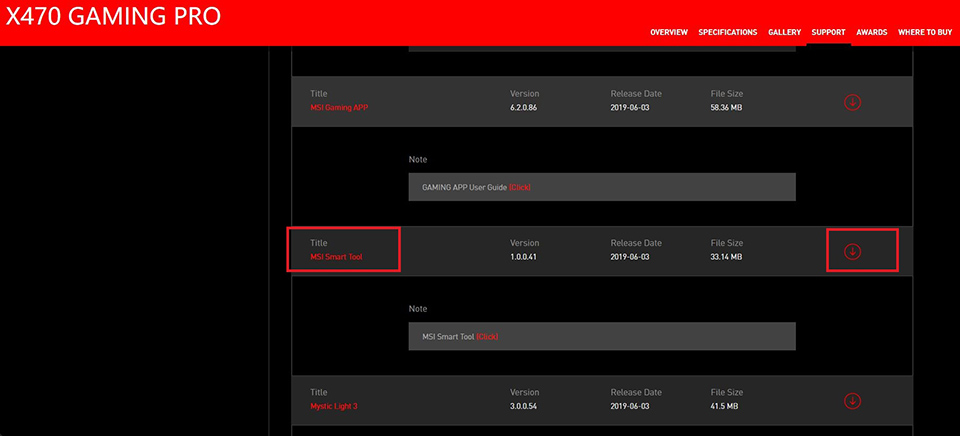
Right-click on the downloaded file and select [Extract All] to unzip the compressed folder
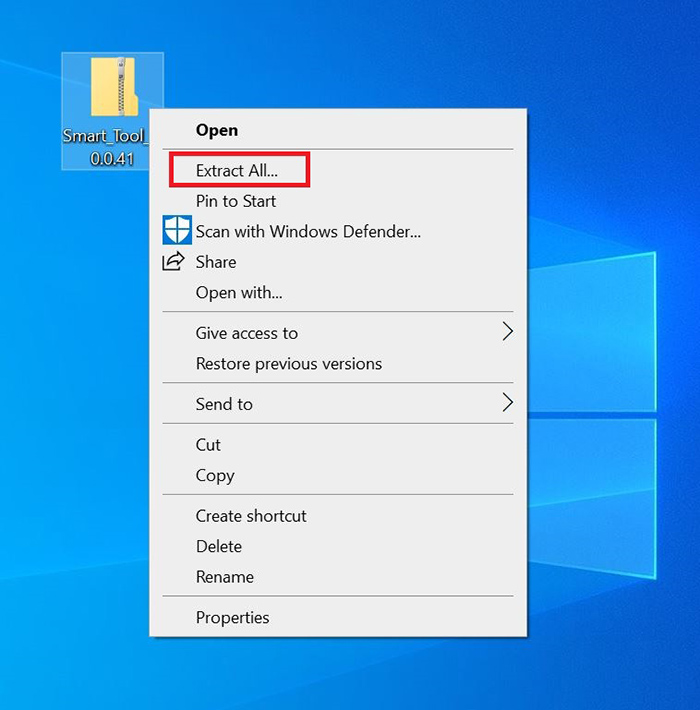
Click [Extract]
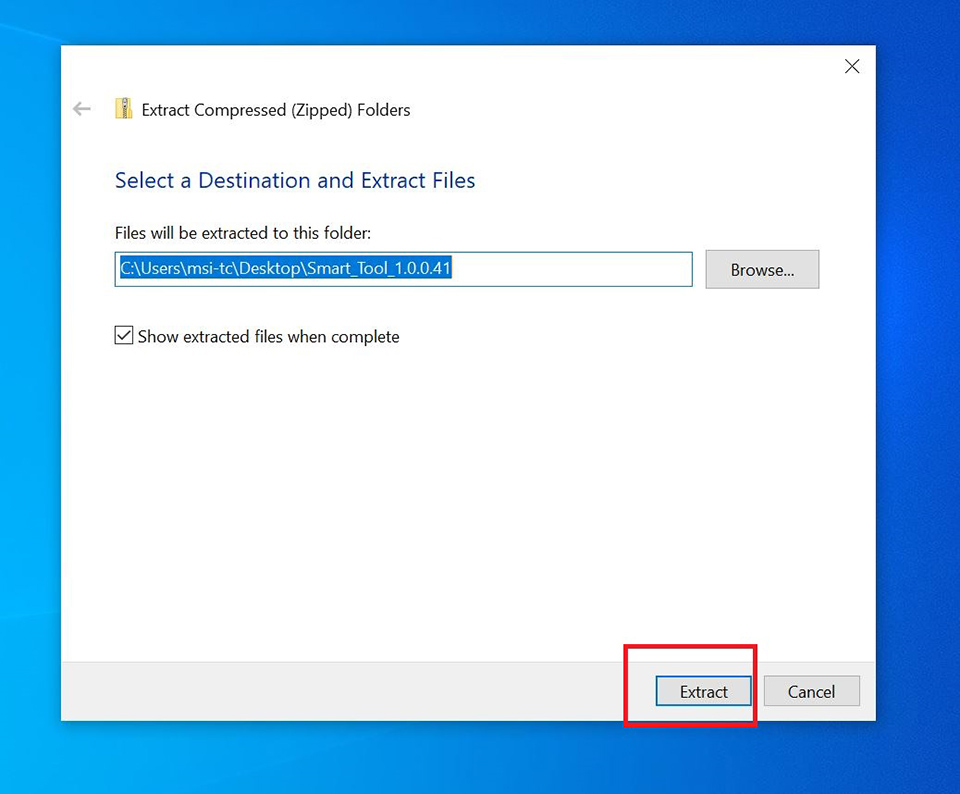
Double click [Smart Tool] to run the program
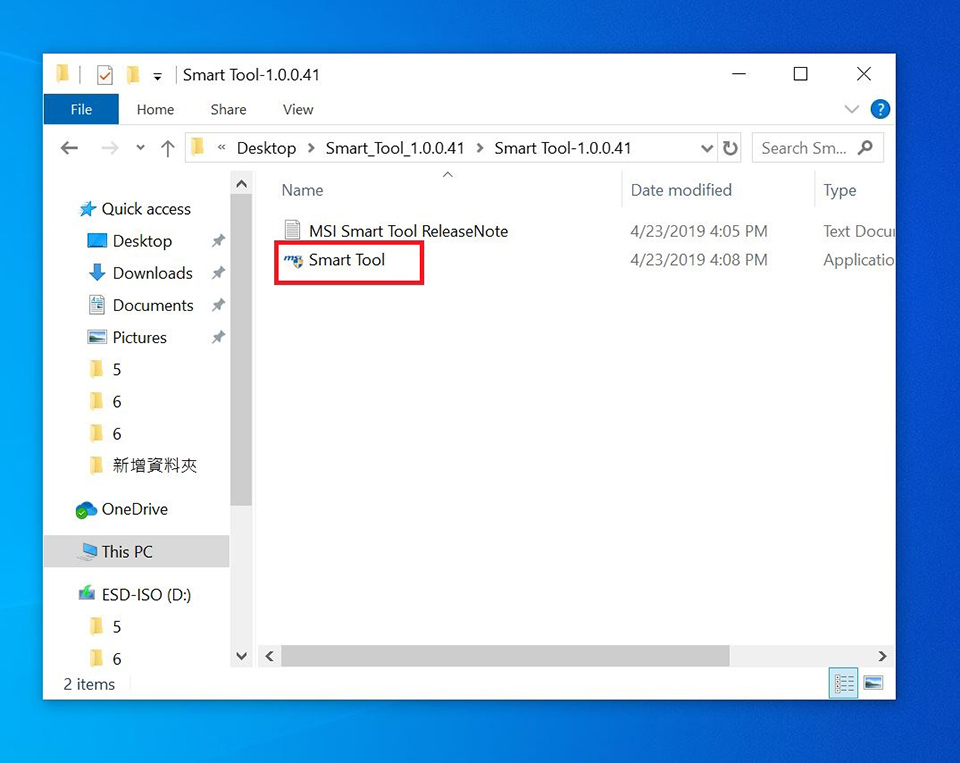
Select your language and click [OK] to install
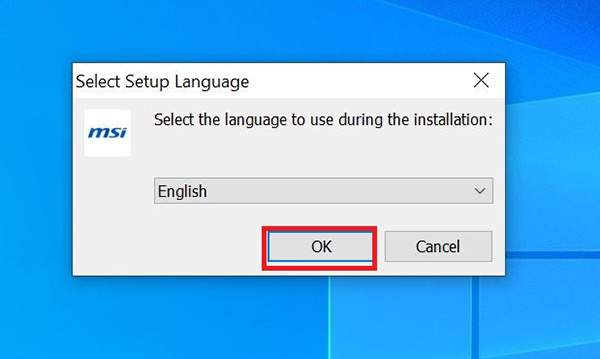
Click [Next]
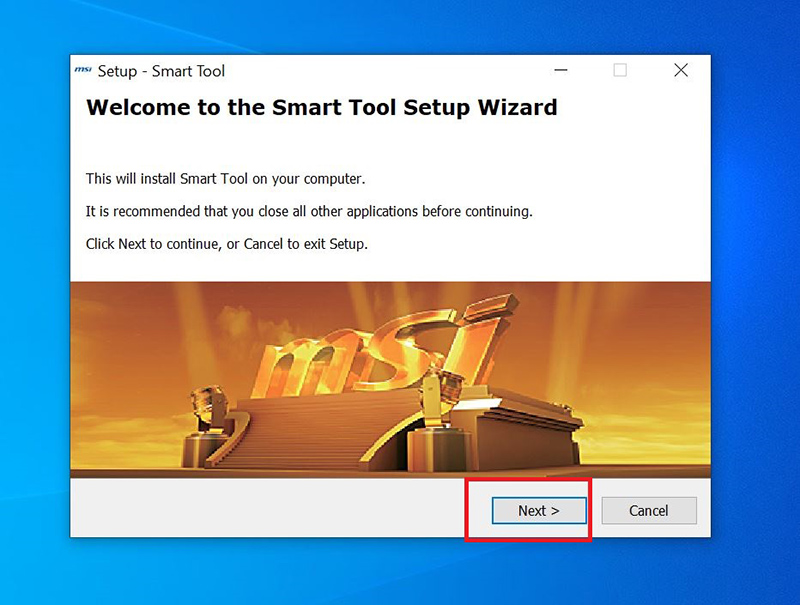
Click [Next]
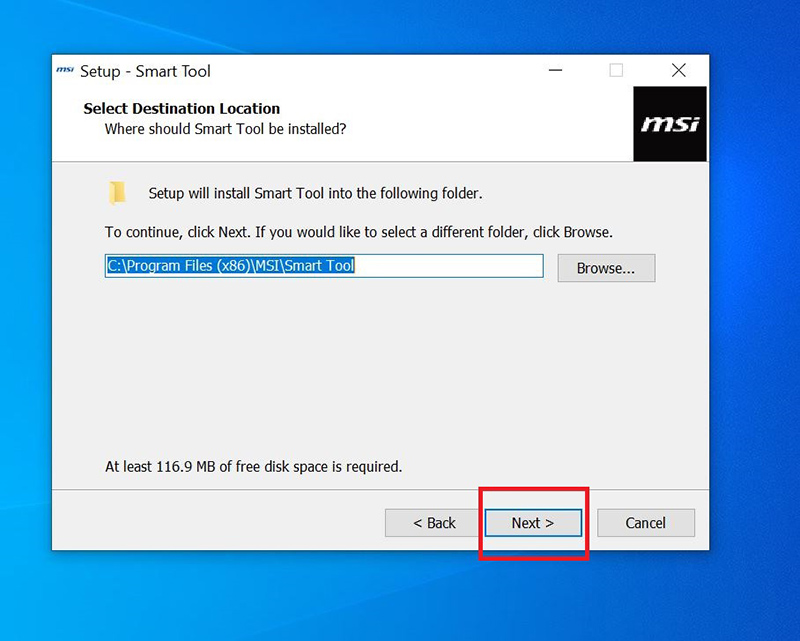
Click [Install]
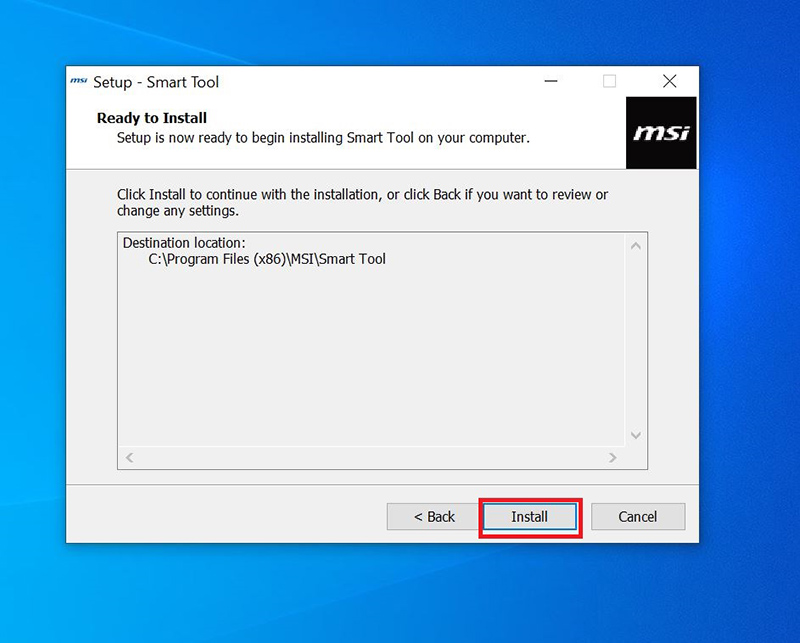
Click [Finish]
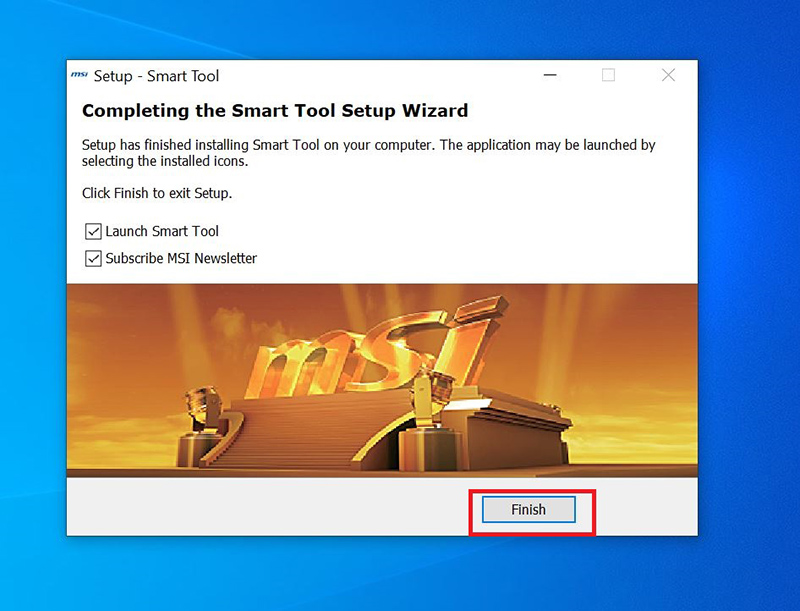
Click [Finish]
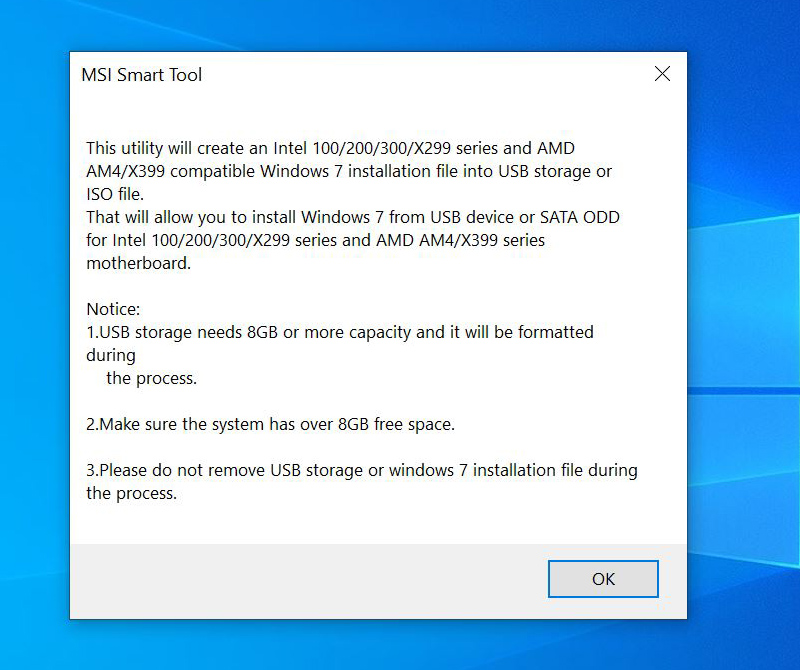
Click [Smart Tool]
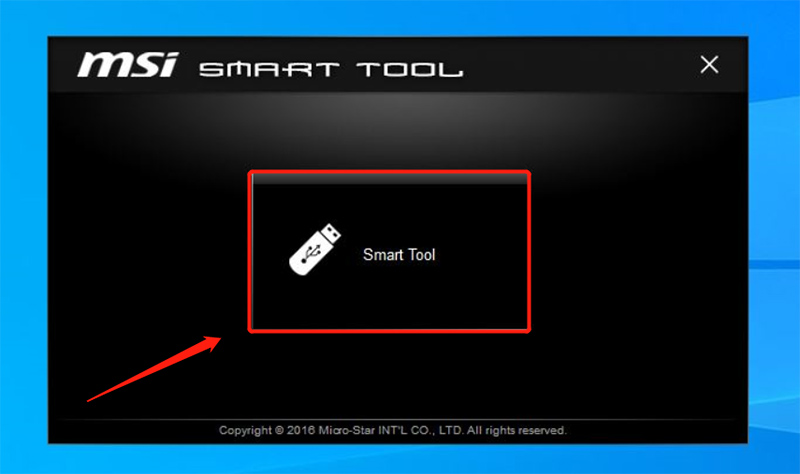
Click the icon to select location of the operating system files
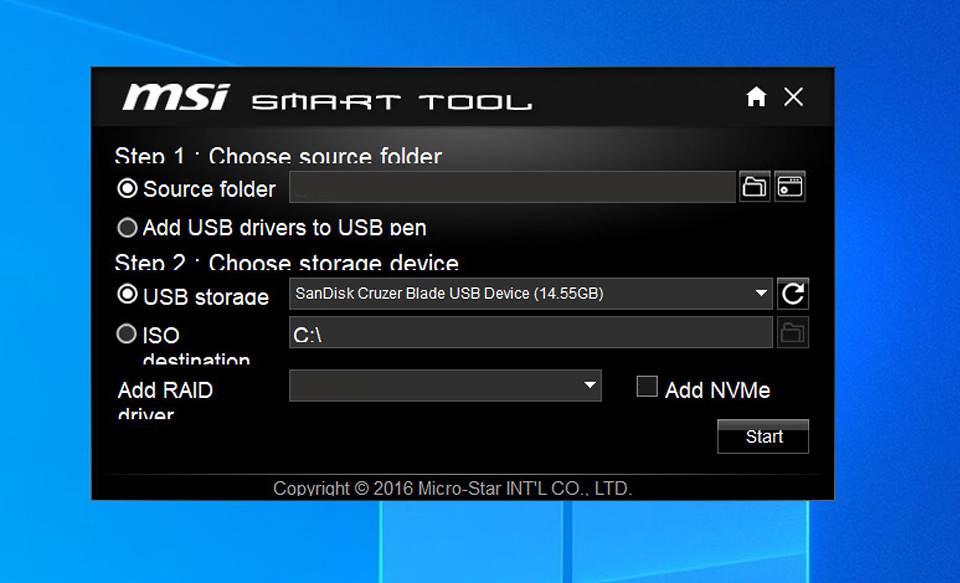
Select the System image for Windows 7 (The system image should be prepared by yourself), Click [Open]
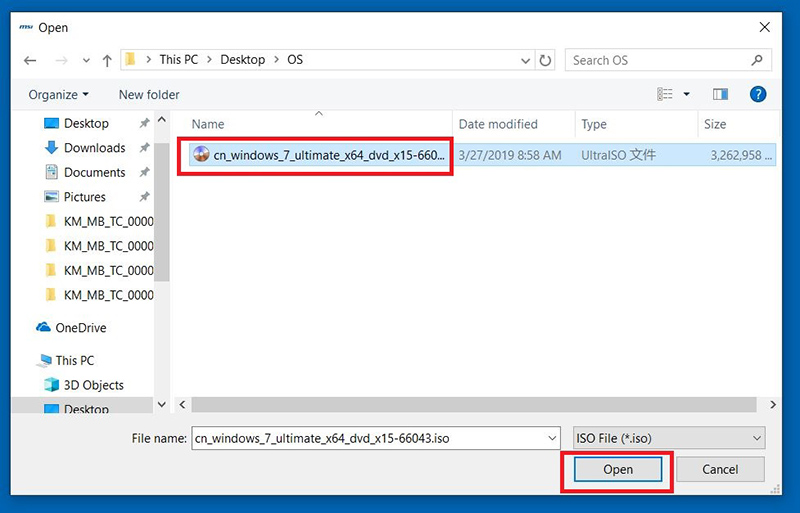
Click on the drop down box [add new driver of RAID ] to choose the required RAID Driver, check [add NVMe driver] next to it, go [Start]
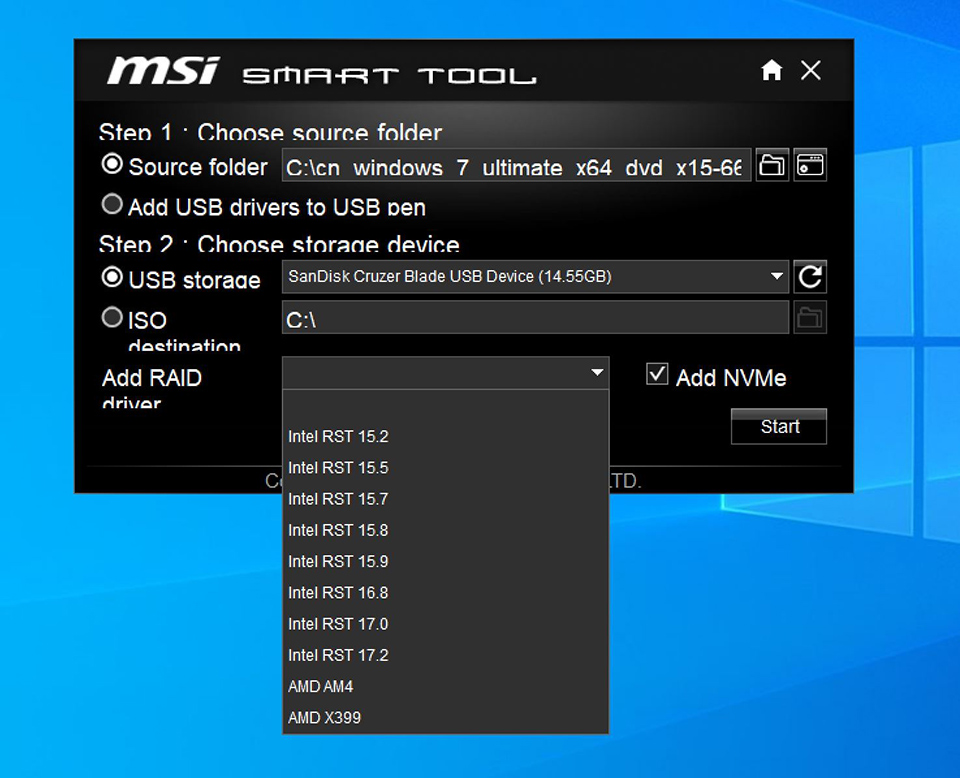
Reminder: the USB device is going to be formatted, all the data will be wiped. To proceed, click [Yes]
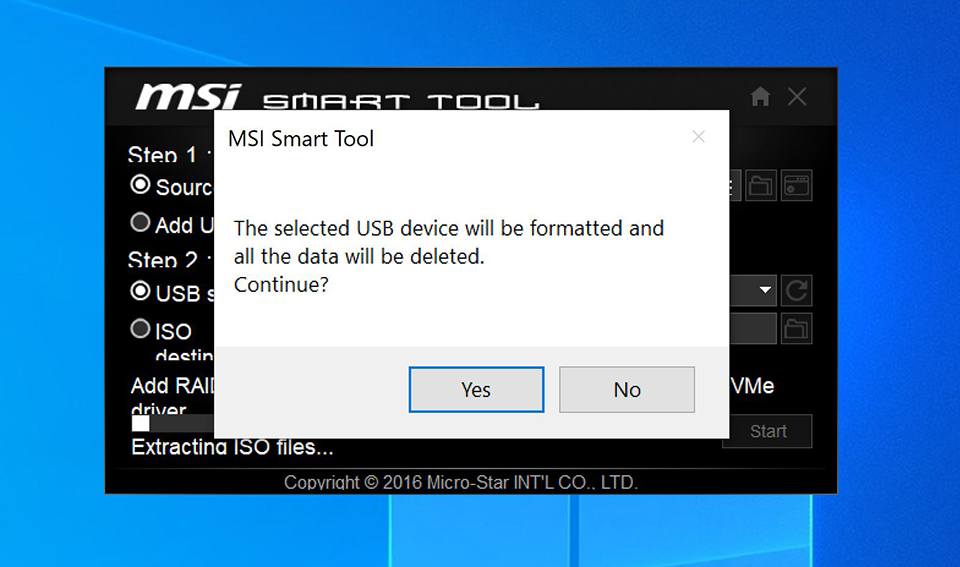
Click [Finished ]
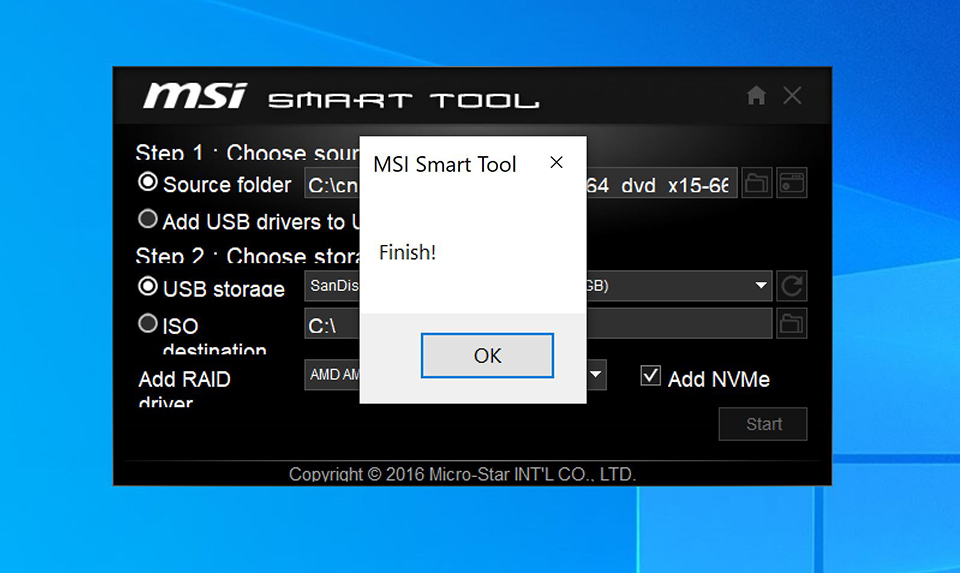
Now click on [Add USB driver to the USB storage device]
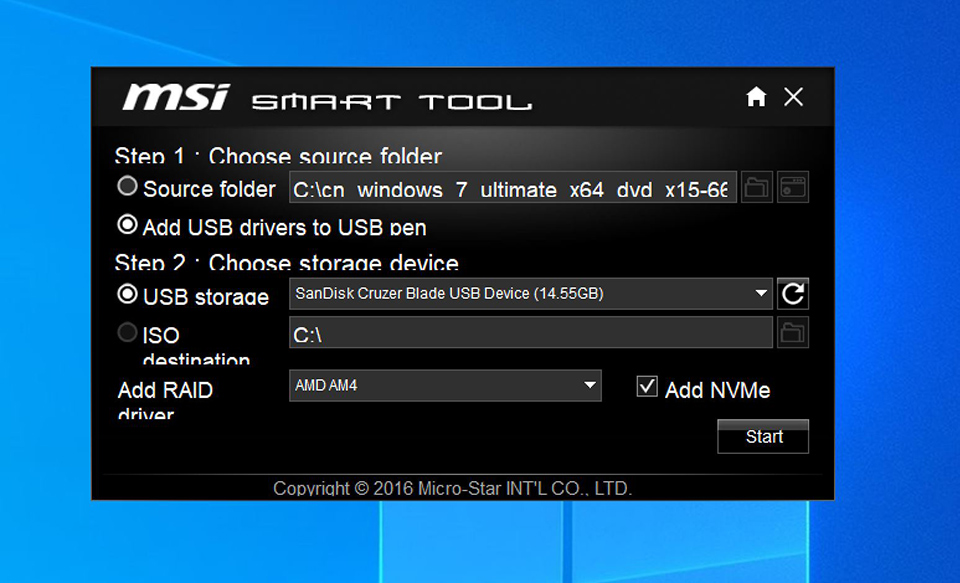
Click [Confirm], now your Windows 7 installation device has been created. You may now start the installation process.
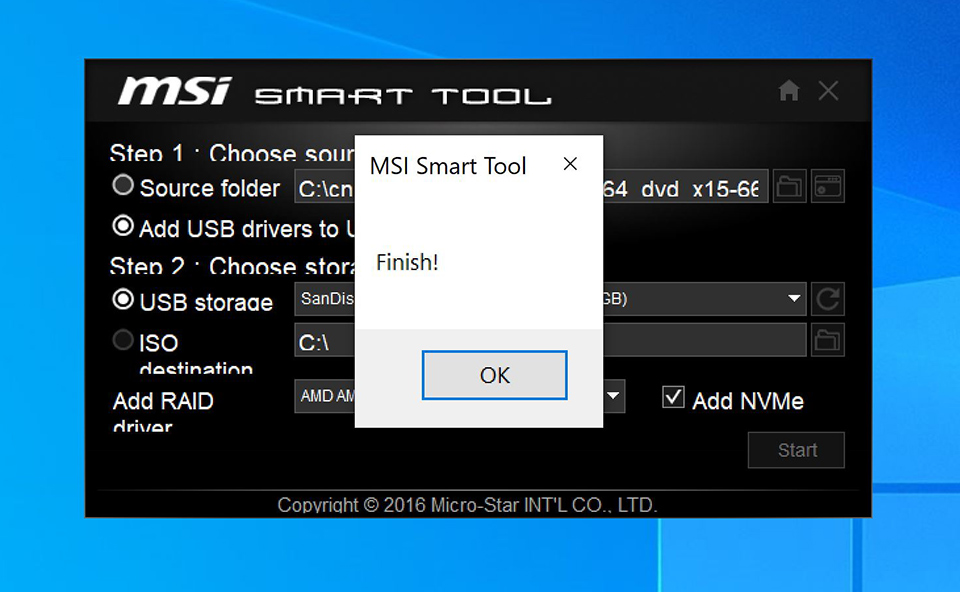
What to do when USB devices are not working when installing Window 10
To confirm the USB device is functional, please do cross testing by having the USB plug in other USB port
If it working, there might be a possibility that the original USB port is failed
If it is still unavailable, please proceed to the next step
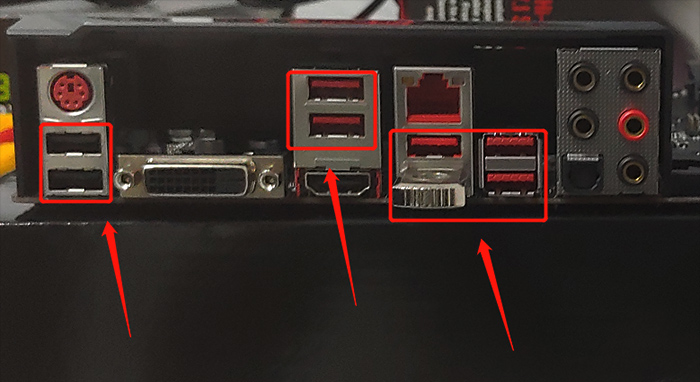
Note: Please connect the USB device to the USB port directly, do not use the USB hub or adapter while doing the Windows installation process.

Change the boot mode to UEFI to confirm the issue
Upon powering on the PC, please start hitting the [Del] key continuously to enter the BIOS menu
Select [Settings] in the menu, then select [Boot], set up [Boot mode select] as [LEGACY+UEFI]
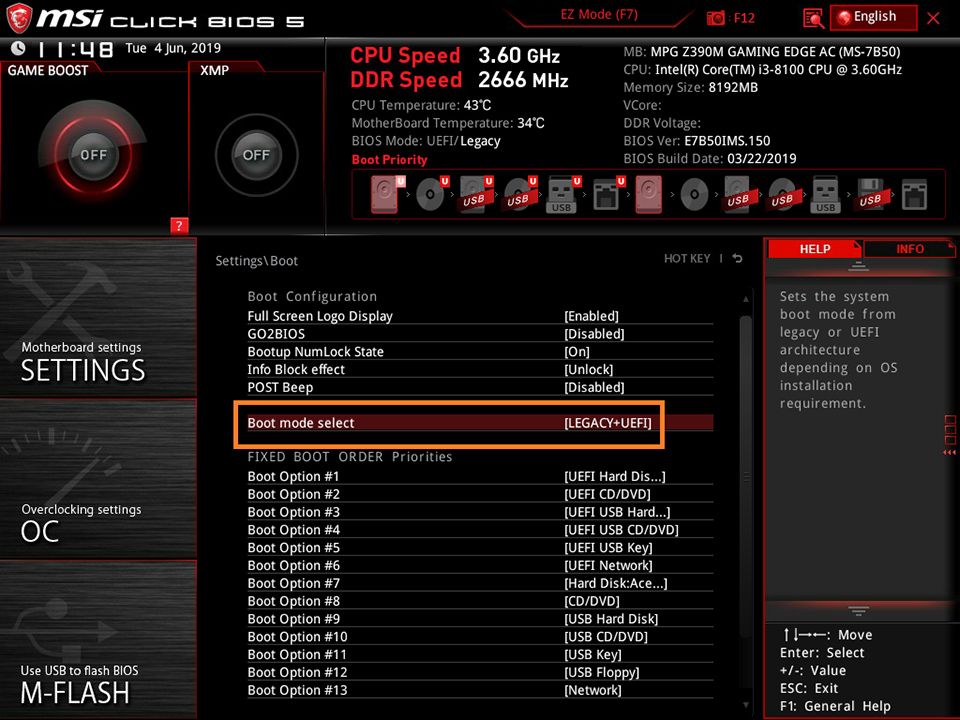
Check if the USB boot device can be detected after doing so.
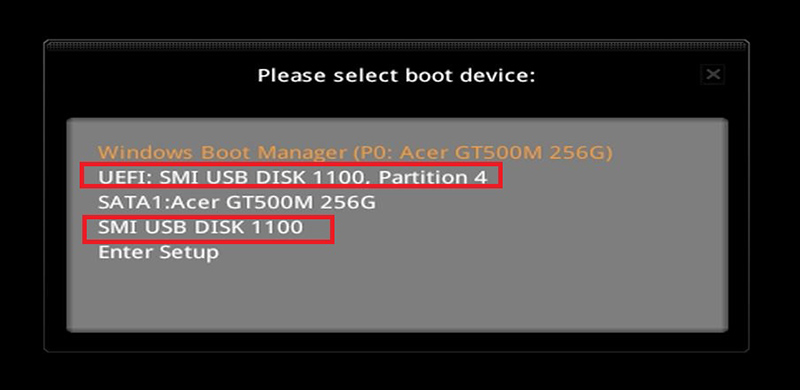
Re-create a new Windows 10 installation boot device
Please refer to the article : How to install Windows 10?
If the newly created boot device is still not working, please try another USB flash to do the process again.
Related article:
